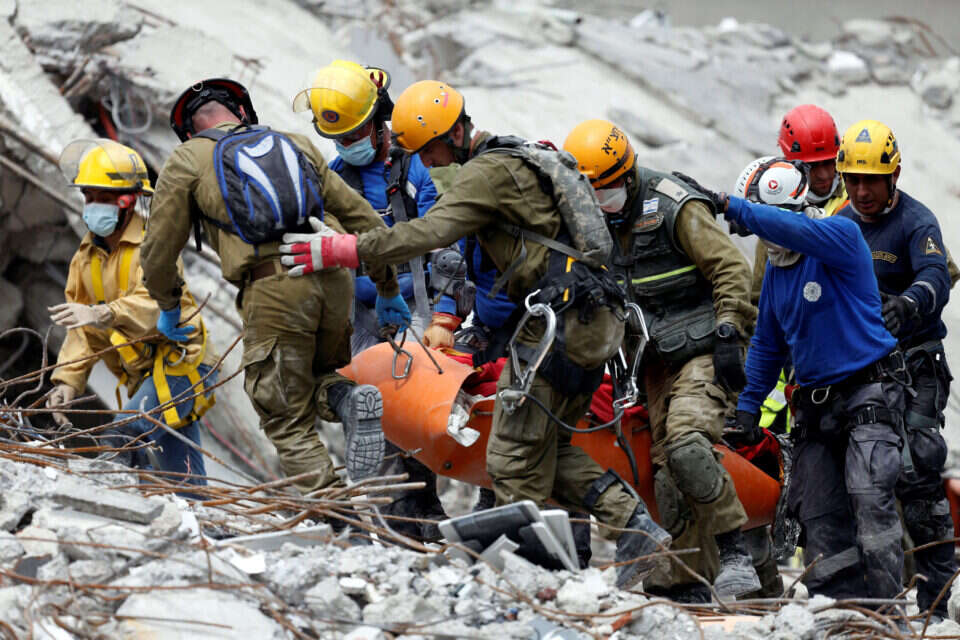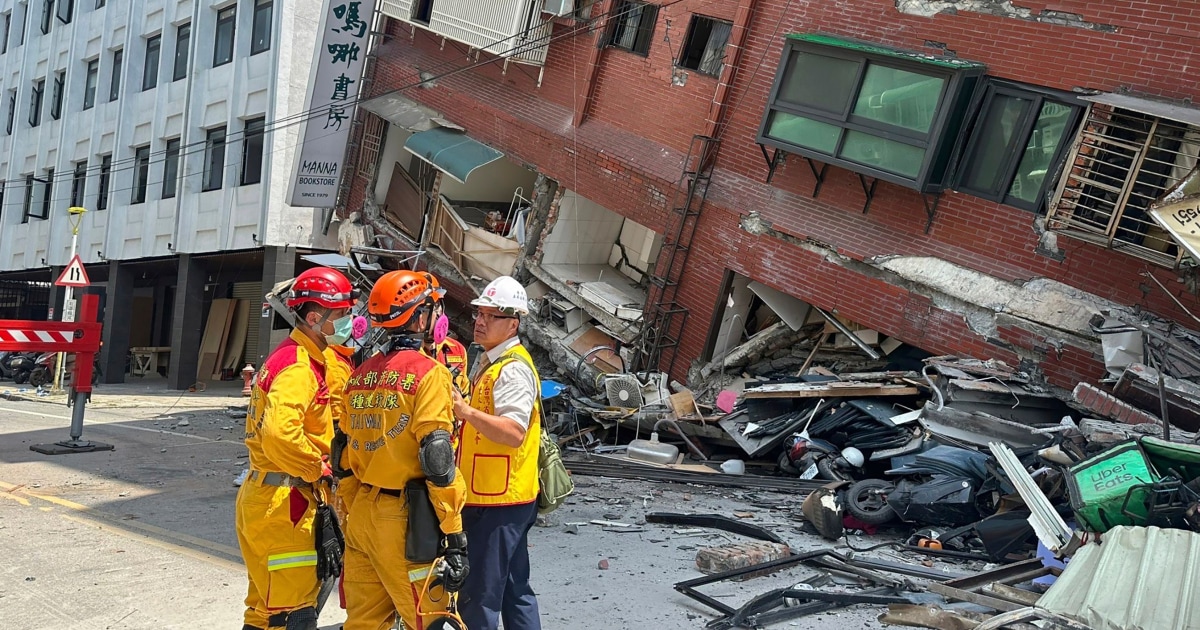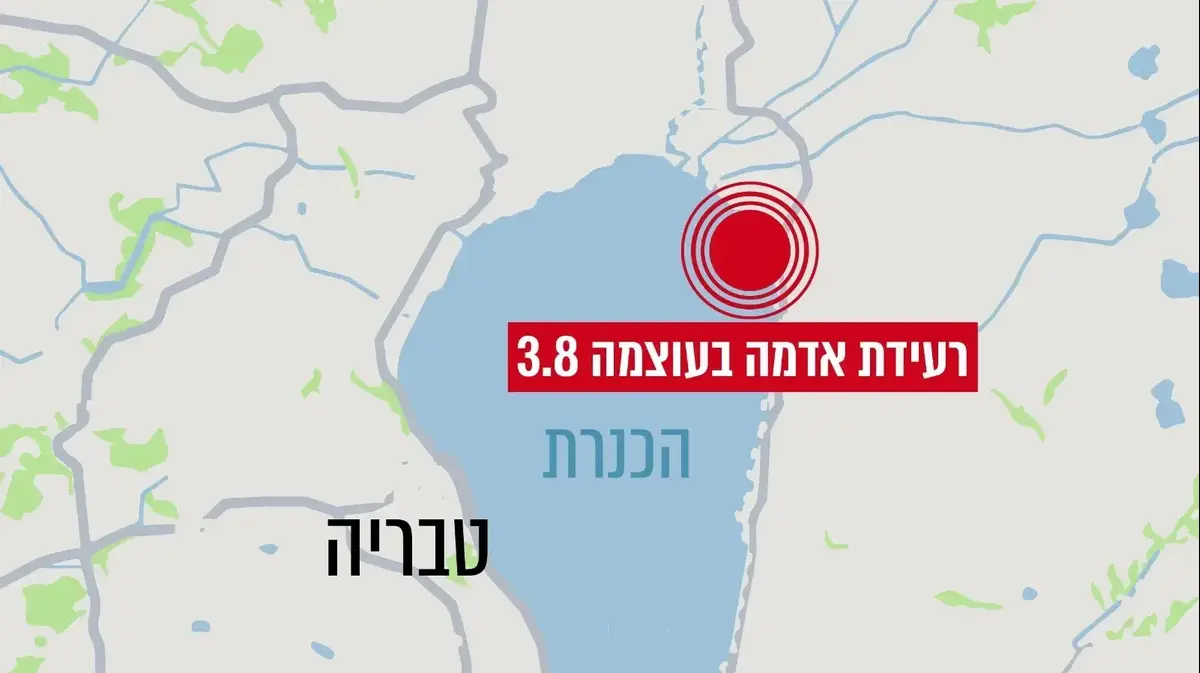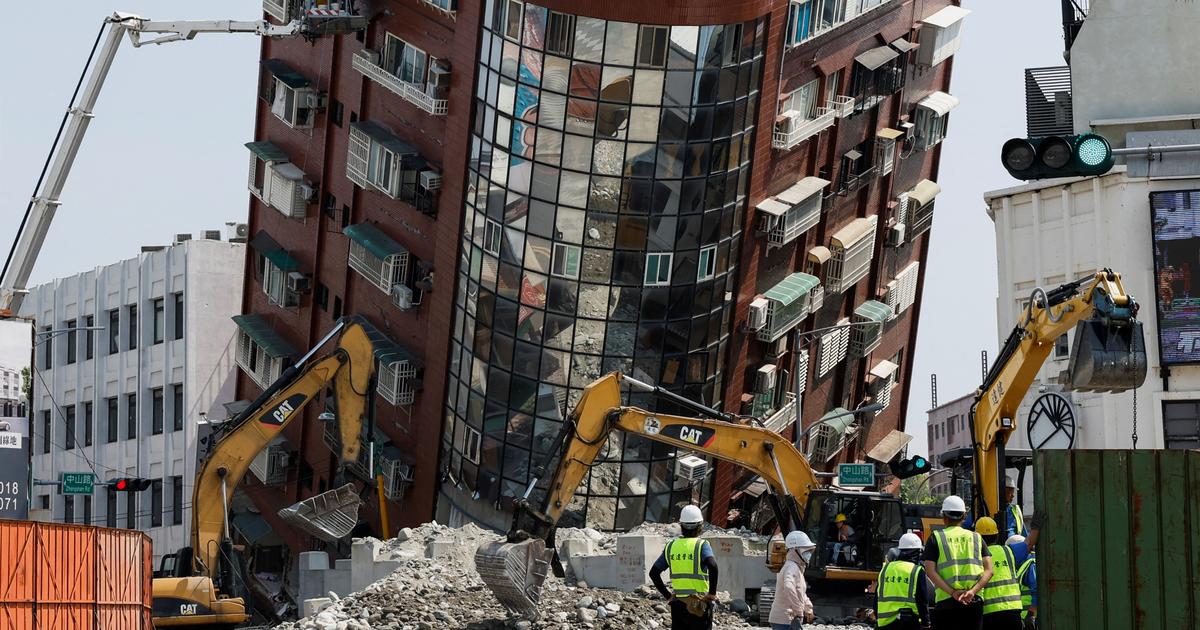The State Comptroller's report, Matanyahu Analgman, for 2021 points to many shortcomings of the authorities and government ministries entrusted to them, in many areas where buildings are in danger of collapsing, through the approval of sanctuaries to drug and alcohol treatment.
The auditor also suggests ways to address the defects, some of which have not been corrected from previous years.
610,000
buildings
in danger of collapse
The State Comptroller's report takes seriously the fact that only 7% of the dangerous buildings in Israel were renovated using NAP 28. In 77% of the authorities inspected, no buildings were mapped at all.
Sometimes these are entire neighborhoods, which are in danger of collapsing because they were built according to an old standard, endangering human lives and most likely will not withstand a severe earthquake.
In total, there are 610,000 buildings in Israel that were built before 1980 and do not meet the standard as of 2021.
As an example, the auditor points to the collapse of the residential building in Holon in September 2021 - a serious incident that ended fortunately without casualties after the building's occupants were required to evacuate it a day earlier.
According to the report, the local planning and construction committees in Beer Sheva, Bat Yam, Kiryat Yam and Tel Aviv did not hold any discussions regarding the treatment of dangerous structures and did not set criteria for declaring a dangerous structure.
In addition, the Ministries of the Interior and Housing have not instructed the local authorities to conduct a survey of buildings, and there is a gap between the cities as to how the buildings are treated, the responsibility of the tenants as well as the municipality on the issue.
Of the 40 sampled authorities, 35 (87.5%) did not formulate plans for the detection and treatment of dangerous structures.
39 out of 40 authorities did not publish the list of dangerous structures to the public.
Moreover, the Ministries of the Interior and Housing, the Planning Director and the Real Estate Enforcement Authority do not have a mapping of the areas with the potential of buildings at risk and the status of their care.
State Comptroller Netanyahu Engelman, Photo: Oren Ben Hakon
Eventually even in cities that began treatment of dangerous structures, it was tiring and sometimes lasted an entire decade.
Neither authority of those examined, does not assist in the grant for the purpose of correcting defects.
Only three of them help provide loans.
In addition, there are no plans to remove the dangers from the houses and evacuate them when necessary.
In addition, the Ministry of Housing and the Ministry of Welfare do not have dedicated programs designed to help apartment owners remove dangers from their homes or assist tenants who have been forced to vacate their homes.
As for educational buildings - the Ministry of Education has not imposed an obligation to check the stability of the buildings, some of which are very old, even though thousands of children come through their gates every day.
The Ministry of Education stated in response that the responsibility for defining an educational structure as dangerous rests with the local authority.
Close cooperation with the authorities.
In light of the auditor's comment, the ministry will re-examine the issue.
"Regarding the strengthening of buildings, the ministry is working in light of a multi-year plan to upgrade buildings and adapt them to the Israeli standard. 470 schools are in the process, out of 1,600 built before 1980.
Who prevents embezzlement in the authorities?
In the municipalities and local councils in Israel, a lot of money is flowing and their budget as of 2019 is NIS 71 billion - a lot of money that invites the possibility of embezzlement.
The auditor notes that 32% of the embezzlement and fraud exposed in the world in 2019 was in local authorities.
Of the 21 authorities examined, only about two-thirds reported such cases between 2015 and 2019 for a total of NIS 6 million.
The State Comptroller's examination found that the Ministry of the Interior did not establish guidelines for taking pan-organizational actions to prevent embezzlement and fraud in the authorities and does not conduct inspections on the subject.
The authorities themselves are not at all instructed to report to him in such cases, and if they are reported, the ministry does not have any procedure for handling reports.
Beer Sheva Mayor Rubik Danilovich.
Conducted a risk survey, Photo: Dudu Greenspan
Most of the authorities examined, with the exception of Eilat and Beer Sheva, have not conducted a risk survey, or conducted a partial survey, and if so then not in the last five years.
The Interior Ministry has not set guidelines for local authorities regarding updating the surveys.
In addition, 14 of the 21 authorities examined did not conduct surprise tests.
A response from the Ministry of the Interior will be provided when received.
Abandon the treatment of electric two-wheelers
Despite the improvement in law enforcement when it comes to electric two-wheeled vehicles, the State Comptroller notes that law enforcement agencies focus on wearing helmets, and abandon other traffic laws.
According to the report in the years 2019-2020, 3,089 people were injured in accidents involving electric bicycles and electric scooters, of which 2,846 riders. 55 people were killed. Still, 58,000 police reports involved riding without a helmet and only a few dozen in other laws. Bicycle speed, almost no enforcement.
Similarly, there is also a problem regarding supervision and enforcement in stores without a trade license as well as in toy stores or chains when it comes to selling upgraded tools.
The Ministries of Economy and Transportation did not conduct any supervision and enforcement actions on the subject.
A man riding an electric scooter on Allenby Street, Tel Aviv (photographers have no connection to the news), Photo: Yehoshua Yosef
The Comptroller notes that since the previous report submitted on the subject, the Ministry of Transport has not formulated its policy regarding the need for licensing and registration of these tools.
Regarding the Openidan project - the establishment of a network of interurban bicycle paths throughout Gush Dan, the ministry did not examine the correctness of the authorities in whose area the project passes, their willingness and ability to establish paths and finance their planning and construction costs.
By September 2021, the construction of eight kilometers of trails out of the 22 km that are under construction (and out of the 150 km planned) was completed. The scope of construction was about NIS 128 million out of the 700 million that will be budgeted for the project.
The response of the Ministry of Transport will be provided when received.
Yesod HaMaala: A collection consultant works for 13 years without an agreement
The report follows a correction of deficiencies from a report published in 2018, on the subject of procurement and engagements in local councils.
In the same year, their contracting procedures with contractors and suppliers of the Hurfish, Yesod HaMaala, Migdal, Mizra, Eilabun and Peki'in councils were examined.
Procedures for ordering services and purchasing goods were also examined.
According to the current report most of the defects have not yet been fixed.
The report states that seven days were allotted for the submission of a bid for a tender for the removal of garbage in the Eilabun local council, from the date of publication of the tender in the Hebrew language newspaper until the deadline for submission of bids.
A single bid was submitted for the tender and it was selected for the winning bid.
However, a year has passed from the date of the decision in the Council plenum on the engagement in 2018 until the actual signing.
The report also states that the council continued the employment of an accounting services provider - 16 months after the expiration date of the contract it signed with him. During the follow-up audit, the council issued a tender and selected a new franchisee.
Economic calculations.
Photo: gettyimages,
As for the local council Yesod HaMaala - this has been contracting for 13 years with a collection consultant, without a valid agreement and without a competitive procedure.
The original agreement was signed in 2009 and is valid for 12 months.
The follow-up audit found that the defect had not been corrected.
In each of the years 2018-2021, the council paid the collection consultant approximately NIS 110,000.
The report also states that in the Hurfish local council, only three procurement committee meetings were held between 2019 and 2021, although during this period hundreds of procurement orders were made that required its convening.
The previous report revealed that from 2009 to 2017, the local councils of Hurfish, Yesod HaMaala and Peki'in entered into a series of agreements with accounting firms.
The engagements were made without the execution of a tender or other competitive procedure.
The follow-up audit revealed that the defect had been fully corrected.
Local councils have issued new tenders and signed with accounting firms contract agreements as required.
Deficits in sanctuaries and their approval without explanation
The auditor's report shows that 50% of the local authorities (127 out of 254) accumulated final deficits in the budget (extraordinary budget), which amounted to NIS 614 million at the end of 2019 - not in accordance with the balanced budget approved in the budget and the Ministry of the Interior's guidelines.
The extraordinary budget is used by the local authority as a whole to finance various projects that carry the character of development works and are defined as an investment.
The audit shows that the largest temporary annual deficits were in the years in which local elections were held (2013 and 2018), and they amounted to NIS 1.15 billion and NIS 1.76 billion, respectively.
In the years in which no elections were held, temporary surpluses accumulated in the public sector.
The total expenditure of local authorities in the Tarbar from 2019 was about NIS 19.6 billion, compared with about NIS 8.7 billion in 2010 - an increase of 125%. Their share is about 20% of the total budget of the authorities.
Banknotes (illustration), Photo: Reuters
The report shows that 21 local authorities began carrying out approvals in 2019, before receiving approval for the budget from the district commissioner in the Ministry of the Interior.
As for the procedure for processing loan applications for development work, it appears that the headquarters of the Ministry of the Interior and the districts examined do not examine the amount of interest rates on loans from time to time to ensure that their mix is optimal.
No rules were formulated regarding the duration of receipt of credit, as opposed to future sources of financing to cover loans.
In an audit conducted from June to November 2021, the auditor examined the development budgets of six authorities: the municipalities of Or Yehuda, Nof Hagalil, Ness Ziona, Sakhnin, Kiryat Ono and the Neve Midbar Regional Council.
In addition, the Ministries of the Interior and Housing were examined.
In half of the authorities surveyed, there is no up-to-date outline plan approved.
The two have no master plan.
Four authorities do not have annual and multi-year work plans that include performance metrics.
In the years 2018-2021, the municipalities of Nof Hagalil and Sakhnin did not report development plans to the Ministry of the Interior.
In some of the councils, adequate explanations were not provided for the approved public records. In some of the authorities, public records were approved at council meetings without a detailed explanation being documented.
The report shows that at the Ministry of the Interior's headquarters there is no general work procedure dedicated to the subject of the master plans.
Authorities operate without a budget
As of the end of the first half of 2021, the budgets of 57% of local authorities had been approved in the districts of the Ministry of the Interior.
This means that at that time 43% of the authorities operated without an approved budget.
In November 2021, a month before the end of the budget year, the budgets of 19 authorities have not yet been approved by the Ministry of the Interior.
In some of the years examined (18 to 21) in the audit, the Ministry of the Interior was significantly late in approving the municipal budget, and in some did not approve at all.
The inspection was conducted in the municipalities of Baqa al-Gharbiya, Yokneam Illit, Modi'in Illit, Kiryat Malachi, Rosh HaAyin and Ramat Hasharon.
The audit shows that the municipalities of Baqa al-Gharbiya, Yokneam Illit and Ramat Hasharon have not prepared strategic plans for the coming years, such as those dealing with future city development, demographic growth and revenue growth expectations and do not have budget-linked work plans.
Rosh HaAyin Municipality Building, Photo: Rosh HaAyin Municipality
In addition, the municipalities of Baqa al-Gharbiya, Yokneam Illit, Modi'in Illit, Kiryat Malachi, Rosh HaAyin and Ramat Hasharon submitted the budget proposals for review and discussion by council members at a later date than stipulated by law.
The municipalities of Baqa al-Gharbiya, Modi'in Illit, Kiryat Malachi and Ramat Hasharon did not make sure to convene the Finance Committee at least once every three months, as required by the guidelines of the Ministry of the Interior.
The municipalities of Yokneam Illit and Ramat Hasharon did not approve reserve budgets (approval of additional budget during the year) for 2018 and 2019, although they exceeded their approved budget for those years and did not seek the approval of the Ministry of the Interior for exceptions as required by law.
The audit also shows that the Ministry of the Interior's Control and Budgeting Division has one control meeting during the years 2018-2020 on the budgetary conduct of local authorities (headed by the Director General of the Ministry of the Interior) and in 2021, until November, there is no control meeting. The aforesaid should take place every quarter, and no minutes of these discussions were found.
Drug and alcohol treatment authorities: The situation is dismal
The State Comptroller's report examined whether and how local authorities deal with the drug and alcohol effects in their area. The audit shows that local authorities and relevant government ministries did not act to map and collect data on the extent of drug and alcohol effects, so in fact , The authorities and government ministries find it difficult to prepare and deal optimally with the phenomena, in everything related to preventive and information actions, detection, treatment and enforcement.
The audit was conducted in May-October 2021, in seven authorities: Haifa, Tira, Nof Hagalil, Rishon Lezion, Ramat Gan, Mate Asher and Yarka.
In addition, completion tests were performed on bodies dealing with the subject, such as the National Authority for Community Security, the Israel Police and more.
The picture that emerges from the review is bleak.
In addition to not mapping and collecting data on the extent of the phenomenon, the auditor found that the budget transferred each year by the National Community Security Authority to local authorities to address the phenomenon, was cut, due to lack of state budget.
Therefore, in the two years prior to the audit, the authorities were left with a budget for staffing only.
Grass cultivation (illustration), Photo: APP
Authorities ranked in a high socioeconomic index paid from their budgets to preserve the workforce, but in the weak authorities, workers were expelled or fired. Gaps that the authorities were unable to bridge.
In addition, the audit found that at the end of 2020, 134 of the 255 authorities in Israel did not have an addiction treatment unit.
Other disturbing findings concern teens.
For example, in 2020, only 110 authorities were employed, protected counselors whose role is to operate in schools, to engage in violence prevention, advocacy and prevention of alcohol and drug use, and to detect student involvement.
Also, only 12 authorities operated juvenile detection units on the addiction sequence.
Ministry of Education response: "The ministry works to assimilate correct behavior and prevent risky behaviors through advocacy throughout the school year. At the same time, it works to increase the number of kindergartens each year to help increase and identify students involved in alcohol and drug use.
The ministry continues to expand their placement in the next school year, with an emphasis on the localities where there is a need and shortage.
At the same time, the Ministry of Education will work to implement the Comptroller's recommendation regarding the strengthening of cooperation with the Ministry of Welfare and the National Authority for Community Security. "
Almost no bylaws
The Ministry of the Interior has not updated the bylaws, for example, for decades - according to an inspection by the State Comptroller.
It also shows that the ministry does not have detailed information on the rate of fees and levies charged by local authorities to their residents.
The Ministry of the Interior also did not establish procedures regarding the inspections that the economic unit is required to perform regarding the by-laws submitted to it.
These are defects that have not been corrected from a previous report.
The previous report from 2016 was carried out by the authorities of Kfar Yona, Lod, Rehovot, the Binyamina-Givat Ada local council and the Hof Hasharon regional council.
In addition to seven additional authorities through questionnaires regarding the enactment of bylaws.
The current report checked whether the defects had been corrected.
The previous report found that the Rehovot Municipality continues to contact consultants to prepare the levy calculations without having a competitive procedure, which continues to exist even now.
27 local authorities have installed up to 10 bylaws only.
Jerusalem Ministry of the Interior, Photo: Yoav Ari Dodkevich
It was also found in the previous audit that 74 of the 355 proposed by-laws (21%) had been in the hands of the Legal Bureau for more than nine months.
Although the situation improved slightly, the follow-up audit found that 71 of the 535 (13%) bylaws approved by the Ministry of the Interior had been in the custody of the Legal Bureau for more than nine months.
Following the findings, the Comptroller recommends that the Ministry of the Interior complete its examination of decentralization and examine ways to assist local authorities to regulate their powers in a way that would allow the enactment of bylaws or enact bylaws in a simple manner as needed.
The specified authorities that have installed a small number of bylaws should take care to enact bylaws in all areas necessary for the role of the local authority and also to provide residents with services as required.
The level of waste removal service is low in the Arab authorities
In the last decade, the growth rate of waste production in Israel has averaged about 2.6% per year, according to the State Comptroller's report.
This increase requires local authorities to plan the waste disposal system and use technological tools to collect relevant data and provide residents with efficient and quality service.
The State Comptroller's Office examined the issue of waste disposal in local authorities and landfilled it in the years 2018-2020.
The auditor's report points to the lack of competition among the evacuation contractors and further notes that the local authorities surveyed throughout the country did not conduct a satisfaction survey among the residents in the field of waste removal - something that is recommended to be done.
The Comptroller recommends that the Ministry of Environmental Protection work to find regional solutions for waste treatment, so that waste treatment and volume reduction activities will be carried out near the place where it is formed - a step that will reduce local authorities' expenditure on waste transportation and reduce environmental damage.
Garbage Disposal (Archive), Photo: APP
It was also noted that in the non-Jewish authorities in Israel, the level of waste removal services is low in relation to the level of these services in the Jewish authorities.
In addition, landfills in Israel are shrinking, even though the amount of waste is increasing.
The State Comptroller's Office clarifies that the shortage of landfills leads to an increase in waste disposal costs of local authorities and may lead to waste dumping in unregulated areas, and further states that the crisis caused by the shortage of landfills requires all relevant factors in leading the Ministry of Environmental Protection to work together to find solutions.
The responses of the Ministry of Environmental Protection and the local government center will be brought in when received.
Were we wrong?
Fixed!
If you found an error in the article, we would love for you to share it with us








